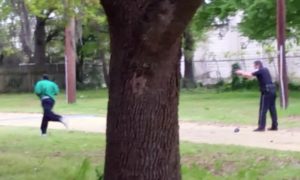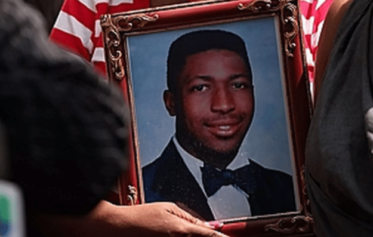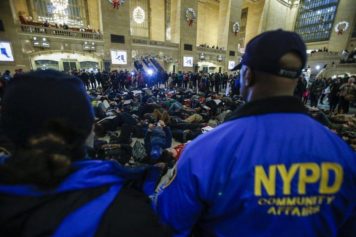The number of cops officers indicted for murder, homicide or manslaughter while on duty has soared in recent months, underscoring the problem of police violence—particularly as the killing of unarmed Black people by police has taken the national spotlight. Reporting for The Atlantic, Conor Friedersdorf wrote that over the past five months, at least 14 police officers were indicted for killing while on duty, which is five times the normal rate.
For example, in the Atlanta area, two former East Point police officers were indicted on charges they murdered Gregory Lewis Towns, Jr. The cops were charged with killing Towns, a 24-year old father, by repeatedly tasering the handcuffed man while he was sitting in a creek.
In Fairfax County, Va., Adam D. Torres, a former police officer, was charged with second-degree murder this week for fatally shooting John Geer, who stood with his hands raised in the doorway of his house nearly two years ago. The indictment marks the first time in the 75-year history of the Fairfax County Police Department that a police officer has faced criminal prosecution related to a shooting while on duty. The death spurred protests and led to a review of the department’s policies on the use of force.
Further, in July, University of Cincinnati police officer Ray Tensing was charged with the murder of Black motorist Sam Dubose during a traffic stop. In addition, a month earlier, a grand jury in South Carolina indicted former North Charleston officer Michael T. Slager for shooting Walter Scott in the back, killing him as he fled after a traffic stop. A month earlier, Baltimore prosecutors announced a grand jury indictment of six officers in the death of Freddie Gray while in police custody. Further, a judge in Cleveland has announced he believes there is probable cause to charge police in the death of Tamir Rice, 12, who was fatally shot last year while playing with a toy gun.
According to Friedersdorf, police in America might very well be charged at a higher rate today, noting that over a seven-year period ending in 2011, an average of 5.8 officers were charged per year, excluding non-shooting deaths, while from May 2005 to April 2015, an average of 5.4 officers were charged per year. Meanwhile, the 14 officers charged over the past five months comes out to an annualized rate of 33.6 charges per year, which is more than five times the normal rate.
This discussion of police indictments for murder comes as large U.S. cities are paying ever-increasing amounts of money to settle police misconduct cases in recent years. The Wall Street Journal reported on July 15, 2015 that the cost of police brutality cases has jumped in recent years, even before the recent scrutiny the police have faced over tactics. In 2014, the cities with the ten largest police departments doled out $248.7 million in settlements and court judgments in police misconduct cases, up nearly 50 percent from $168.3 million in 2010. Those cities paid a total of $1.02 billion over those five years, in cases including alleged beatings, shootings and wrongful imprisonment. Moreover, the total increases to $1.4 billion when claims related to property damage, car collisions, and other police-related incidents are taken into account.
Last month, the City of New York settled with the family of Eric Garner for the high-profile chokehold death of the Black Staten Island resident that sparked massive protests, for an agreed settlement amount of $5.9 million.
Meanwhile, the data and dollar amounts and the charges in these horrific cases tend to gloss over the human toll of police violence in the Black community. Writing for NPR on August 19, Gene Demby wrote about the toll that reporting on Black death has taken on him and other Black journalists, with the ever-increasing cases. Demby reflected on the stress–and while he did not explicitly say it, the vicarious trauma–that Black reporters face while coverage the multitude of killings involving police brutality and misconduct.
“Those of us on the black death beat have to make it to next November, and beyond, without burning out. So how are we going to do it?” Demby asked. “While the industry writ large has yet to take on that question, the beat has given rise to its own informal support network — folks emailing and Google chatting and texting to check on whoever’s heading out to the latest conflagration or sure to be on the hook for a long essay.”
Moreover, Demby channeled a journalist from an earlier era who was faced with numerous cases of violence against Black bodies:
“It is with no pleasure that I have dipped my hands in the corruption here exposed,” wrote the 19th century investigative journalist Ida B. Wells, a black woman born in Holly Springs, Miss., in 1862, in the preface to Southern Horrors: Lynch Law In All Its Phases, her incredibly well-researched pamphlet on hundreds of lynching cases. “It seems to have fallen upon me to do so.”



